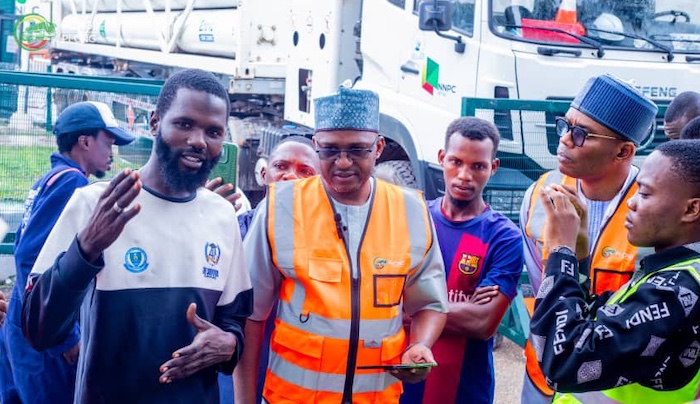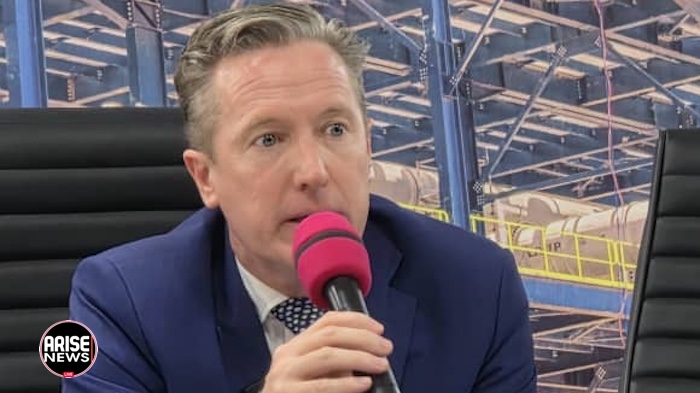
The Minister of State for Petroleum Resources (Gas), Ekperikpe Ekpo, on Thursday launched the Nigerian Gas Vehicle Monitoring System (NGVMS), a key step in the federal government’s drive to promote safety, accountability, and environmental integrity in the nation’s Compressed Natural Gas (CNG) sector.
At the event, it was also revealed that the federal government has mobilised at least $1 billion in private capital to boost the entire value chain of the CNG segment.
Speaking at the pilot launch held at an NNPC Retail Station in Abuja, Ekpo said the NGVMS will ensure that only vehicles converted at accredited facilities with certified kits can access CNG at approved stations.
He noted that the system will provide end-to-end oversight, from conversion to refuelling, guaranteeing the safety of citizens and the integrity of Nigeria’s growing CNG ecosystem.
Ekpo described the initiative as a milestone under President Bola Tinubu’s Renewed Hope Agenda and the Decade of Gas Initiative, aimed at making CNG the affordable and sustainable energy choice for Nigerians.
Chairman/CEO of the Presidential Initiative on CNG (PiCNG), Ismaeel Ahmed, revealed that over $1 billion in private sector investments have flowed into Nigeria’s CNG value chain. He added that more conversion and refueling stations will be commissioned nationwide before year-end.
Leaders of various transport unions in Nigeria, in separate speeches at the event, expressed gratitude to President Bola Tinubu for launching the PiCNG to mitigate the impact of fuel subsidy removal in 2023.
They said that under the initiative, members have benefited from over one million free CNG kits, buses, and tricycles (Keke), which has led to significantly reduced transportation costs and subsequently lowered the prices of foodstuffs across the country.
The union leaders urged the government to prioritise commercial vehicles in the CNG project, ensuring that they are given preference. Additionally, they appealed for the expansion of CNG stations nationwide, noting that only a few states currently have CNG conversion and refuelling stations.
Meanwhile, Nigeria’s 650,000 bpd Dangote oil refinery has been buying a lot less crude lately amid operational setbacks, something analysts say could persist into next year and keep supporting gasoline prices, Bloomberg reported on Thursday.
Dangote is expected to purchase fewer than 300,000 barrels a day of crude this month, according to tanker-tracking data and cargo allocation lists compiled by Bloomberg. The amount, which includes local supplies and imports, is down more than 50 per cent from a peak in July, and is less than half the plant’s capacity.
How much crude the refinery buys is important for the market because it’s a substantial petrol producer. Since starting in 2024, it has transformed oil markets in West Africa and beyond, but faced operational issues including unplanned outages and sabotage by workers amid reorganisation efforts, Bloomberg said.
That, along with outages at refineries in places like Europe and the Middle East, helped make petrol prices unusually strong in recent months.
Dangote’s petrol unit, the biggest in Africa, has had several stoppages this year, and it could have to shut down again early next year to complete major work, according to intelligence firm IIR Energy. Analysts including consultant FGE NexantECA are therefore skeptical that the refinery can operate at a high rate going into 2026.
A Dangote Industries Ltd executive, Bloomberg said. declined to comment on the future operational status of the main gasoline unit.
“We think it is likely that Dangote will continue to face issues next year, albeit to a lesser extent than this year,” said Qilin Tam, head of refining at FGE NexantECA. Unscheduled outages “could add a bullish sentiment to the gasoline market moving forward,” especially ahead of next summer’s driving season.
The plant’s residue fluid catalytic cracker unit was due to restart this week after a hiatus stretching back to late August, according to IIR, which monitors outages. IIR says major work remains to be completed on the petrol-making unit and that it could have to shut down again in January.
The Dangote Industries executive said last week that the unit had already restarted, but didn’t elaborate.
“European gasoline has been extremely strong as a result of Dangote’s issues,” Sparta Commodities analyst Neil Crosby said. “At the moment Dangote’s track record is poor, and if that keeps going it will be supportive for European gasoline, and to a degree distillate, going forward.”
About 150,0000 barrels a day of feedstock for this month will come from state oil company Nigerian National Petroleum Co. under a recently agreed supply deal. NNPC is set to ship a similar amount to Dangote in November, according to cargo allocations seen by Bloomberg.
Since peaking in July — mostly because of bigger imports from the US — the refinery’s crude purchases have slowed, which could reflect lower run rates due to capacity curbs. There’s another sign of reduced demand for imports: Dangote hasn’t yet bought any West Texas Intermediate for November, traders say.
It can still ramp up purchases in the spot market any time, though Crosby said marginal buying decisions are likely to be influenced from month to month depending on operational issues. Wood Mackenzie Ltd. said run rates should pick up once the current issues are sorted.
Any further operational issues at the refinery would curb crude runs and lead to a lower-value mix of oil products in place of petrol, said Alan Gelder, WoodMac’s vice president of refining, chemicals and oil markets.
That could underpin Dangote’s exports of fuel oil to Asia — a big buyer of the fuel — as well as keeping European petrol flowing to West Africa to make up for the local shortfall, which would support Europe’s refining sector, he said.
Emmanuel Addeh



